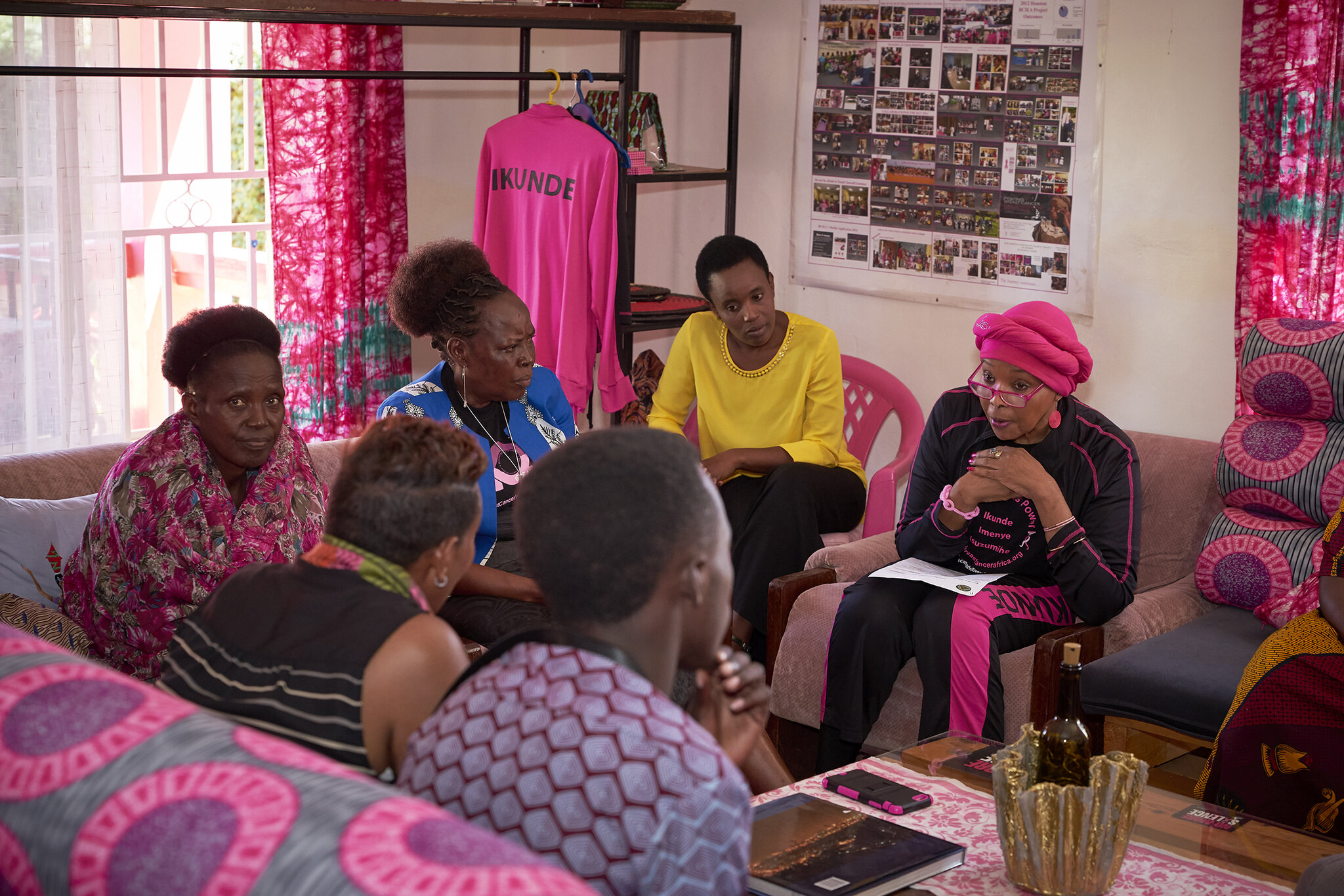
Last Monday, I spoke at an event within this year’s virtual World Health Summit: Setting a New Agenda for Women and Cancer, hosted by Roche. Myself and the five other incredible women panellists addressed how, despite the unprecedented disruption brought by COVID-19, we will continue to support an agenda and initiatives that positively support women’s health moving forward.
The Lancet paper “NCD Countdown 2020: Pathways to achieving Sustainable Development target 3.4”, reconfirms our fears that unless we address all NCDs in a comprehensive way, and not only from a prevention perspective, countries will not be able to meet this ambitious target. Addressing access to diagnosis, treatment and care to save lives today is imperative to meet target 3,4. According to the Lancet, despite efforts undertaken by countries, the pace of change, particularly for cancer, is too slow. Data shows that the risk of dying of heart and respiratory diseases have declined faster than any other causes. By contrast, cancer related diseases have declined more slowly. Yet, meeting the target for some of the highest incidence cancers including cervical cancer should be possible with both preventive, diagnostic and treatment options all possible
As ever, the question is: what could be done better? To respond to this question, I will share some of the lessons learned so far through the C/Can model:
1.Cancer requires a data-driven, comprehensive, systemic integrated response. As a community we should join forces and stop working in silos. This is why at C/Can we are addressing solutions to strengthen the health system as a whole. We are running an average of 10 projects per city, addressing infrastructure, services, access to essential medicines and technology, capacity building of the health workforce, information systems, health financing, leadership and governance for the delivery of quality care.
2. The second lesson is that delivering comprehensive solutions requires a multidisciplinary, multisectoral and inclusive step-by-step approach. It is also critical to bring the community, and public and private stakeholders together to foster dialogue and a cohesive approach to identifying problems, planning and implementation. If the community is not part of the planning, solutions don’t respond to their needs, so implementation fails. The only sustainable initiatives are locally led and cross sectoral, with everyone engaged.
3. The third lesson is that community-led solutions are most effective. For the first time, C/Can is collecting data through a ‘systems’ lens from the ground-up – to understand local needs, so we can respond and adapt. It is very important for everyone to be engaged, particularly vulnerable and marginalised groups in low and middle income countries (LMICs) including women – which is why the voice of civil societies and patient groups are so important.
For C/Can, discovering the power of cities has been one of the most enlightening aspects of our work. We have had to convince many non-believers who insisted we could only address cancer at the national level. Cities have more bandwidth to innovate, to accelerate solutions, to bring stakeholders together, including the voice of the patients and civil society organisations. They are more flexible, which results in action, making things happen more rapidly and effectively. At the end of the day, cities translate global agreements into local action.
4. The fourth lesson relates to the power of ‘agents of change’. C/Can has worked with more than 1,300 health professionals, a community of people who support cancer patients through their journey. People who work in hospitals, clinics, and community organizations, these are the committed individuals who change the lives of patients every day. We must invest in them! We must support them, listen to them, learn from them and connect them with other communities and partners in their city, region and around the world. We should provide them with professional development opportunities, exchanges and other ways to build capacity.
A red thread throughout our panel discussion, was the potential of digital health solutions to help accelerate progress towards SDG 3.4. The use of digital solutions brings opportunities to empower patients, and particularly vulnerable and marginalised groups including women to access information, address financial challenges, and navigate the health system, which for cancer care can be highly fragmented.
In my closing remarks, I highlighted the urgency of investing in women’s digital education and digital health literacy to ensure we avoid another divide, “a digital divide”, that will be critical to advance equitable access to quality cancer care.
Isabel Mestres Mesa
Director, Global Public Affairs, City Cancer Challenge





